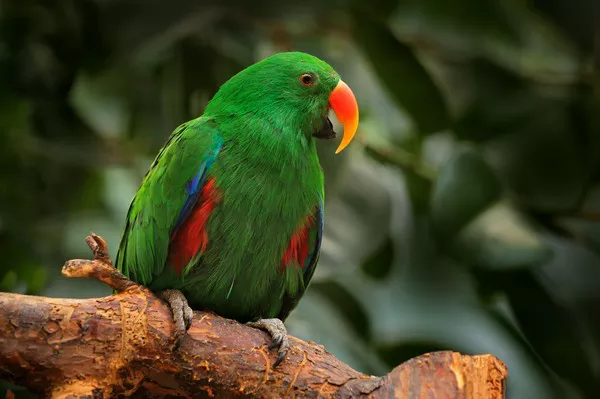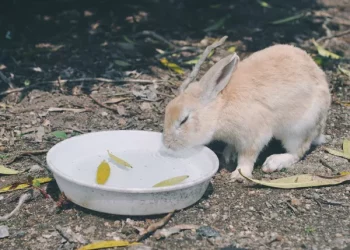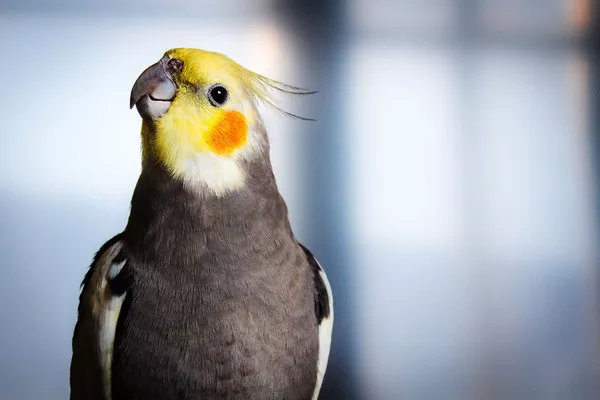Corn snakes (Pantherophis guttatus) are among the most popular and beloved pet reptiles in the world. Known for their docile temperament, manageable size, and attractive coloration, they are a favorite choice for both novice and experienced reptile enthusiasts. However, many snake owners wonder if their corn snakes will calm down as they age. This question is common among snake enthusiasts, particularly for those who are new to owning a pet snake. In this article, we will explore whether corn snakes become calmer with age, how their behavior changes over time, and the factors that influence their temperament.
Understanding Corn Snake Behavior
Before answering whether corn snakes calm down with age, it is important to understand their general behavior and natural instincts. Corn snakes are non-venomous constrictors native to the southeastern United States. They are known for their friendly and inquisitive nature, which is why they are considered great pets. Unlike some other snake species that can be aggressive or territorial, corn snakes tend to be more tolerant of handling and interaction with humans.
However, like all animals, each individual snake has its own personality. Some corn snakes are more shy and prefer to remain hidden in their enclosures, while others may be more curious and active. It’s essential to remember that corn snakes, like other reptiles, are not domesticated in the same way as mammals. They do not have the same social structures or need for affection that mammals do. As a result, they may not actively seek out human interaction, but they can tolerate it if handled gently and correctly.
Corn snakes are primarily nocturnal hunters in the wild, meaning they are most active during the evening and night. They rely on their keen sense of smell, heat sensitivity, and exceptional eyesight to locate prey, such as small rodents. In captivity, their behaviors may shift based on the temperature, lighting, and feeding schedule in their environment. However, even in captivity, corn snakes retain many of their natural instincts.
The Developmental Stages of Corn Snakes
Like most reptiles, corn snakes go through several stages of development during their lives. Each of these stages may bring about different behavioral changes, which can influence how calm or excitable they appear.
Hatchlings and Juveniles (0-1 Year)
When a corn snake hatches, it is already fully formed, though quite small—typically around 10-15 inches in length. At this stage, corn snakes are highly active and energetic. As hatchlings, they are exploring their new environment, and they often display more nervousness and stress due to the unfamiliar surroundings. A young corn snake may be more prone to defensive behaviors like striking or attempting to flee when handled. This is entirely normal and is a survival mechanism to protect them from potential predators.
As juvenile corn snakes grow, they become more accustomed to their surroundings and human interaction. While they may still be somewhat nervous and may startle easily, with time and patience, they tend to become more tolerant of handling. However, it is essential to note that younger snakes may be more skittish because they are still figuring out their place in the world.
Subadults (1-2 Years)
By the time a corn snake reaches its first or second year, it has typically grown to about 3-4 feet in length. This stage in their life is characterized by increased confidence. While they are still quite active, they may show more interest in their environment and are less prone to the frightened, defensive behaviors they exhibited as hatchlings.
During this period, a corn snake may begin to display more curiosity towards its owners. However, this is also the time when many corn snakes experience their first breeding season. Male corn snakes, in particular, may become more active and assertive as they search for mates. This can sometimes lead to increased stress or irritability, especially if the snake is handled during this period.
Adults (2+ Years)
Corn snakes typically reach their full adult size by the time they are around 2 years old, with some individuals reaching lengths of 5-6 feet. As adults, their behavior becomes more predictable, and many owners notice that their corn snakes are generally calmer and less defensive. They have become accustomed to their environment and have learned that their human caretakers do not pose a threat.
Adult corn snakes, having settled into a routine and becoming comfortable in their surroundings, are generally much easier to handle than younger snakes. They tend to be more relaxed and less likely to startle, although they still retain their natural instinct to strike or retreat if they feel threatened. In most cases, adult corn snakes are more tolerant of handling and are less likely to bite than younger snakes. However, their temperament will largely depend on their individual personality and the way they have been raised and handled.
Do Corn Snakes Calm Down with Age?
In short, yes, corn snakes generally do calm down with age, but this process is gradual and influenced by several factors. While they may never become as relaxed and affectionate as some other pets, such as dogs or cats, their behavior does tend to mellow over time.
Several factors contribute to a corn snake’s calming process as it ages:
Familiarity with Environment: As a corn snake grows older, it becomes more familiar with its environment. This familiarity reduces stress, which in turn leads to calmer behavior. When a snake is no longer in an unfamiliar setting, it is less likely to feel the need to act defensively.
Increased Comfort with Handling: Corn snakes are naturally curious, and with repeated, gentle handling, they often become more accustomed to human contact. Over time, they may realize that humans do not pose a threat, and as a result, they become more relaxed when handled. Handling your snake regularly and in a gentle, non-threatening manner will help it learn to trust you.
Maturation: As corn snakes mature, they tend to settle into a more predictable routine. Their instinctual drive to search for food and shelter becomes less frantic, and they learn to recognize feeding times and environmental cues. This change often results in a calmer demeanor overall.
Decreased Aggression: While young corn snakes are more likely to strike in defense, adult corn snakes generally become less aggressive as they grow older. They become less reactive to perceived threats and are more likely to retreat into their hide than to strike out in defense. This is part of their natural development into adulthood.
Breeding Season Influence: It is important to note that breeding seasons can influence a corn snake’s temperament. Male corn snakes, in particular, may become more active and aggressive during the breeding season, so their behavior might temporarily change, regardless of their age. However, this is a seasonal change and not indicative of their overall temperament.
Factors That Influence a Corn Snake’s Temperament
While corn snakes tend to calm down as they age, certain factors can influence their overall behavior and temperament. These factors include:
1. Handling and Socialization
Regular, positive interaction with your corn snake is one of the most significant factors that can influence its behavior. Snakes are naturally shy and can be stressed by sudden or rough handling. If you want your corn snake to be calm and relaxed, it is essential to handle it gently and often, particularly during its juvenile stage when it is learning to trust humans.
It’s important to be consistent and patient when handling your snake. Gently lifting the snake from its enclosure, letting it slither across your hands, and avoiding sudden movements can help your corn snake feel more comfortable. Avoid forcing your snake into uncomfortable situations, as this could lead to stress or fear.
2. Feeding Schedule and Diet
Corn snakes are opportunistic feeders, and their diet consists mainly of small mammals like mice and rats. A regular feeding schedule will help your snake feel more secure, as it will associate feeding time with positive experiences. Inconsistent feeding or overfeeding can lead to stress, which could make your corn snake more defensive or less tolerant of handling.
Additionally, a proper diet will ensure your corn snake remains healthy and less irritable. Malnutrition or illness can significantly affect your snake’s behavior, making it more lethargic or aggressive.
3. Enclosure Size and Setup
A corn snake’s enclosure should be spacious enough to allow it to move freely. Snakes need plenty of room to explore, hide, and climb, which helps keep them mentally stimulated. A cramped or poorly designed enclosure can lead to stress and anxious behavior. The enclosure should also include appropriate hiding spots, a secure lid, and a temperature gradient to allow the snake to regulate its body temperature.
4. Health and Wellness
Just like any pet, the health of your corn snake can impact its temperament. Snakes that are ill or suffering from parasites may become more lethargic or irritable. A sick corn snake is less likely to tolerate handling, and its behavior may become erratic or defensive. Regular veterinary checkups and a clean, safe environment are essential to ensuring your corn snake remains calm and healthy.
Conclusion
Corn snakes generally do calm down with age, but this process is gradual and dependent on several factors, including their environment, handling, and overall health. While they may never develop the same level of affection or calmness as a pet cat or dog, their natural inquisitiveness and docile nature make them great companions for reptile lovers. By providing a comfortable environment, handling your snake regularly, and ensuring its health, you can help your corn snake become a calm, well-adjusted pet over time.
If you are patient and understanding of your corn snake’s needs, you will likely find that it grows into a more relaxed, tolerant, and enjoyable companion as it ages. Every snake is different, so take the time to learn about your corn snake’s unique personality and behavior, and your bond with it will only deepen over time.
Related Topics:





















